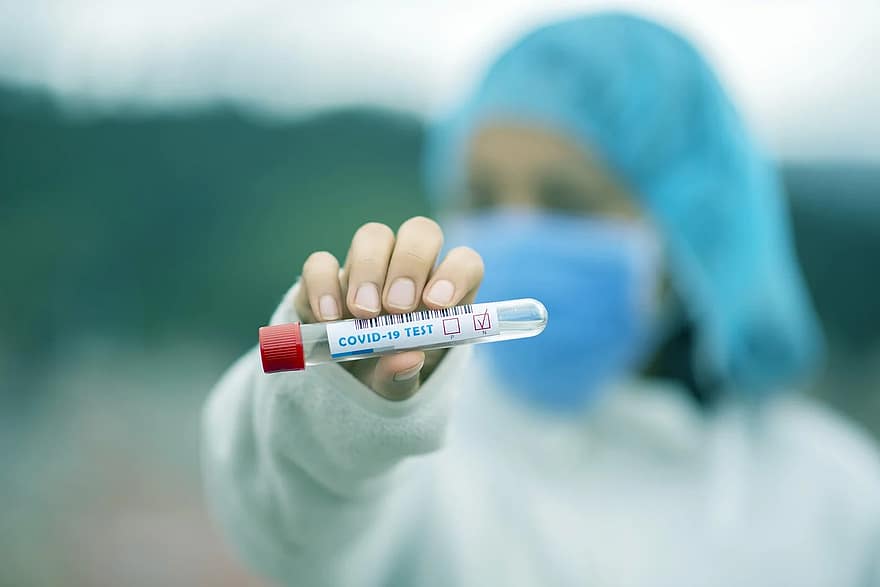The US Centers for Disease Control and Prevention is asking states to prepare to distribute a vaccine against the Coronavirus by next month. The CEO of Pfizer says he believes his company will likely have enough data to seek permission from the FDA by October.
Officials within the US Food and Drug Administration told CNN that US President Donald Trump has consistently pressed medical departments to speed up their schedule for developing a vaccine so that it can achieve a vaccine victory by Election Day. Is it really possible to get a vaccine against the Coronavirus by next November?
Doctors conducting clinical trials of coronavirus vaccines do not think this is possible.
“Do the simple math,” said Dr. Larry Curry, of the Fred Hutchinson Cancer Research Center in Seattle, who leads the coordinating team for clinical trials of federally supported coronavirus vaccines in the United States.
Curie told CNN that they designed the experiment to reach 130 or 140 endpoints seven months after the experiment began, and the first began in mid-July.
And what Curie means is that the trials are designed to continue until 140 or 150 people are infected with the Coronavirus. The researchers were trying to find out whether the people who got the real vaccine were less likely to be infected among those infected.
But if you add seven months to July, you get February next year.
This does not mean that it is impossible to get an answer before then. And if one of the vaccines being tested was very effective, and there was a high rate of infection among the people volunteering in the trials, then many of the people who got the placebo injection were likely to become infected quickly.
“If you have a highly effective vaccine, you might know that within five months of designing the trial,” Currie said.
But if you add five months to July, you get December at the end of the year.
The results do not lead us to October
There are other obstacles, and Dr. Paul Offitt, director of the Center for Vaccine Education at Children’s Hospital of Philadelphia and a member of the FDA’s Vaccines and Related Biological Products Advisory Committee, said that most of the ongoing third-phase trials aim to enroll 30,000 people each. That’s because the people who designed the experiments believed it would take a lot of volunteers to see 140 or 150 cases of the virus.
None of them have been fully registered yet, it is September, and many, if not most, volunteers have received their first dose of the vaccine.
And require all vaccines developed during the third phase trials, two doses, separated by a period of one month. Therefore, people, who received their first dose last August cannot be given a second dose until this September. Those who receive the vaccines this month will not receive their second dose until next October.
“You have to wait two weeks after the second dose until you have complete immunity,” Offit told CNN.
A timeline is unlikely, but not impossible
Why is management talking about results in November or even October?
“This is very unlikely, but it is theoretically possible without doing anything wrong,” said Dr. Ann Fulsey, a professor of medicine at the University of Rochester School of Medicine in New York, who is coordinating the clinical trial there for the candidate coronavirus vaccine, AstraZeneca.
And if one of the vaccines being tested is very effective, that will become clear quickly, as people in the group that got the placebo will be infected at a much higher rate than the people who got the real vaccine.
Offit agrees, who noted that the trials are not designed to detect mild or asymptomatic infection and that the “clinical endpoint” is a severe disease, and it is unlikely that the trials will produce many surprising data ahead of schedule.
The US Food and Drug Administration told the companies that the vaccine must be at least 50% effective to be taken into account, meaning that they will have to reduce the risk of death or severe disease by 50%.
The US Food and Drug Administration cannot move faster than the data
Offit said it usually takes a year for the FDA to approve a vaccine after submitting all stage 3 data. The expedited process could take 10 months.
In the event of a pandemic, this process is speeded up, and the “high-speed” process is implementing other required steps in parallel with clinical trials, which helps companies to start manufacturing vaccines even before the trials are completed, so the Food and Drug Administration can be ready to move in no time. Much closer.
It may also interest you
Fauci reveals the “legitimate way” to terminate early coronavirus vaccine trials
But the only way for there to have enough data to get a vaccine on the waiting list to get emergency use permission from the FDA would be if one or more of the trials got an amazing amount of data very, very quickly.
Dr. Albert Burla, President and CEO of Pfizer, thinks that could happen.
Burla pointed out that the third phase of the clinical trial of the “Covid-19” vaccine of his company had registered about 23 thousand participants, and some of them were already getting the second dose of the vaccine.
On Thursday, in remarks to the International Federation of Pharmaceutical Manufacturers and Associations, Burla said that Pfizer “must have enough events to say whether the product is effective or not” by the end of October.
It may also interest you
Can Trump make a decision to get a Corona vaccine prematurely?
And the people making that decision are the Data and Safety Monitoring Board, which is an independent group of experts, separate from the company that develops the vaccine, the doctors who run clinical trials, and the federal government, and can peek at the data early.


